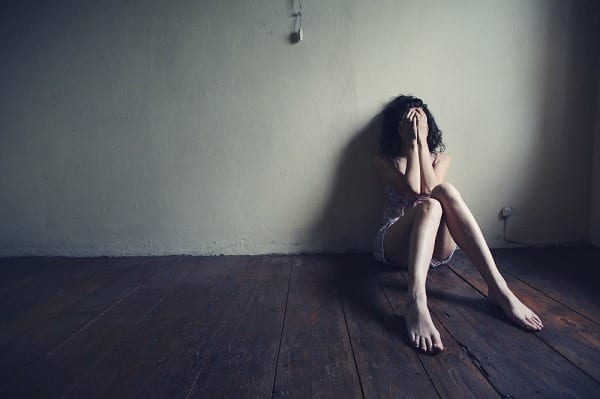The world’s media, however, remained largely silent about the anniversary.
The purpose of the day, to highlight the use of sexual violence and rape as a tactic of war, seems futile when even UN troops are guilty of committing rape.
A report by the Associated Press of UN peacekeeping missions from 2005 to 2017 found that there were nearly 2,000 ‘allegations of sexual abuse and exploitation by peacekeepers and other personnel’.
Peacekeeping soldiers have long been accused of sexual abuse during their missions.
They’ve done it in Haiti, Cambodia, Liberia, the Democratic Republic of Congo, the Central African Republic and beyond.
Peacekeeping soldiers have impregnated local women and passed on sexually transmitted diseases, including HIV/AIDS, without recourse because the UN doesn’t have the jurisdiction to prosecute soldiers contributed by member states.
The UN was roundly criticised for its 13-year occupation in Haiti, not least for their role in spreading a deadly cholera outbreak and their bungled handling of the situation.
During the operation, 134 Sri Lankan peacekeeping troops were implicated in a sex ring in which they sought sex from nine children from 2004 to 2007.
When the plot was uncovered, 114 of the soldiers were sent home, but none of those involved have ever been prosecuted for their crimes.
Peacekeeping forces, however, are hardly the sole perpetrators of sexual violence in conflict.
In the context of war, a broken legal system and a subsequent lack of rules (or their lack of enforcement) means perpetrators are free to commit sexual violence with impunity.
‘State actors, members of organized non-state armed groups, peacekeepers and members of private military and security companies’ are among the main offenders.
Its value as a tactic to instil fear in victims and their families and communities and consequently control populations of people is unparalleled.
The Democratic Republic of Congo has been dubbed ‘the rape capital of the world’.
Mired in violence since the First Congo War erupted in 1996, festering ‘interethnic tensions’ and the struggle for power perpetuates the instability and conflicts.
Victims are targeted by militiamen, who systematically use rape as a ‘weapon’.
A local woman named Mamie shared her story of being raped in 2017 with aid workers from Médecins Sans Frontières:
“I was raped in my home, next to my husband’s body, in the presence of my children. It was last year, during the violence. I had five children. They killed three of them, leaving me with just two. They raped my three oldest girls before killing them.”
MSF reports that of the 2,600 people treated for rape between May 2017 and September 2018 in the east of Congo, 32 were men – some of whom were forced to rape community members. A further 162 were children under the age of 15.
Due to the long-running war, victims have few options: the ‘under-resourced’ healthcare system has been further weakened by decades of fighting.
There’s no sign of peace anytime soon.
Sexual violence is similarly rampant in Syria.
It is said that ‘no one had been unaffected by sexual and gender-based violence during the Syrian conflict’.
The ISIL insurgency popularised stoning women accused of adultery, forced marriage and guardianship laws for women and girls.
The Syrian Army has been repeatedly accused of sexual violence in detention facilities, checkpoints and house raids.
Evidence also suggests many men and boys are among the victims.
A report by the Syrian Justice and Accountability Center (SJAC) found evidence of sexual and gender-based violence in 30 ‘state-controlled’ detention facilities across Syria.
Detainees are subject to deeply disturbing acts of sexual violence specifically designed to humiliate and dehumanise, like invasive strip searches, rape, gang rape, genital mutilation and torture, to ‘obtain confessions and extract information’.
Sometimes victims are forced to rape each other.
A man named Tarek told UN investigators he was detained and ‘held in a dark cell for a month with 80 other people, often naked’:
“They would come into the cell to violate us, but it was dark – we couldn’t see them. All we could hear were people saying, ‘Stop! Don’t!’.”
Who can forget the sickening stories of torture and sexual violence against Iraqi prisoners at the hands of American soldiers in Abu Grahib, or the sexual slavery of Bosnian Muslims in the former Yugoslavia during the Bosnian War?
Sexual violence in conflict isn’t just modern history – it’s happening right now.
The UN’s recognition of June 19 as the International Day for the Elimination of Sexual Violence in Conflict is a hollow gesture. It’s as empty and meaningless as a beauty queen wishing for world peace.
A first step would be demanding the prosecution of peacekeeping forces who target women and children for sex and actively negate their mission in already unstable regions.
#Unbroken is a movement aimed at increasing awareness of the sexual violence experienced by women in conflict and breaking the cycle of stigma and shame attached to victimhood. Please read these brave women’s stories.


